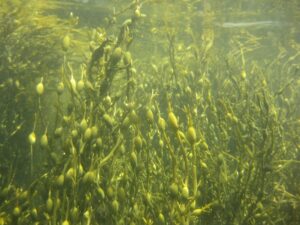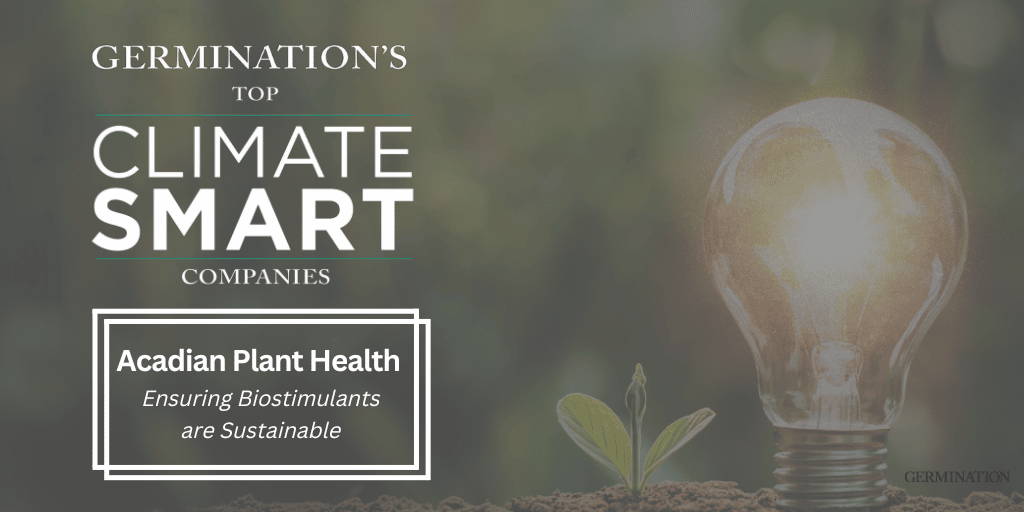Canada’s climate is changing. Higher temperatures, shifting rainfall patterns, extreme weather events and rising sea levels are just some of the changes already affecting many aspects of our lives.
Changes in climate will persist and, in many cases, will intensify over the coming decades. That will have significant impacts on Canadian communities through our economy, social well-being and environment.
We must understand these impacts and the options available to us if we want to build resilience through adaptation, reduce the associated risks and costs of climate change’s impacts, and support sound decision-making.
Germination put out the call for seed industry players who are making a difference in helping mitigate the effects of climate change. The qualifications? That the company have an active effect on mitigating the effects of climate change on Canada’s seed sector. Here’s the fourth of who we selected for 2022.
At Acadian Plant Health, sustainability is at the forefront of everything they do. Acadian believes it is possible to improve crop production while respecting the environment. This starts from the way they harvest to their end products. Acadian carefully oversees every stage to ensure they are in step with being a company that respects the planet.

Raw material for its biostimulant products, based on a type of seaweed, is gathered using harvesting tools that are gentle on the ecosystem and allow for quick regrowth of the resource. Harvesting less than 25 per cent of the allowed quota, its resource management system has led to a seaweed stock that is more plentiful and healthy today than it was 30 years ago.
Proving they’re meeting the stringent standards set under new regulatory requirements, Acadian Plant Health is one of the first biostimulant companies to earn registration under the European Union’s new Fertilizing Product Regulation (FPR) as part of the EU Green Deal.
The new regulation was created in part to promote sustainable agricultural strategies in a low-carbon economy through stronger regulations on safety, quality, and labelling requirements for fertilizer products.
Beyond that, it provides the company with an opportunity to provide an alternative solution in reducing synthetic chemical and fertilizer use.
“Acadian’s seaweed extract solutions are positioned to play a vital and positive role in transforming global agriculture — all in a way that successfully meets the challenges we face today and tomorrow,” says Sarah Maude, vice-president of technology for Acadian Plant Health. “Our solutions can help deliver on the vision of the Green Deal, while ensuring farmers can continue to achieve the results they expect.”
Acadian’s products are eco-friendly and eco-efficient, manufactured with a commitment to improve energy efficiency and waste reduction at all stages of production. All of the valuable raw material is used throughout the process. Acadian’s crop biostimulant products are also compatible with most other agricultural products.
For more climate smart companies visit:
Ellis Seeds Shows How to Create a Climate-Smart Business Model
Sarah Foster and 20/20 Seed Labs are Reducing the Carbon Footprint of Seed Testing
This Tech Company is Helping Plant Researchers Breed for Drought Tolerance











